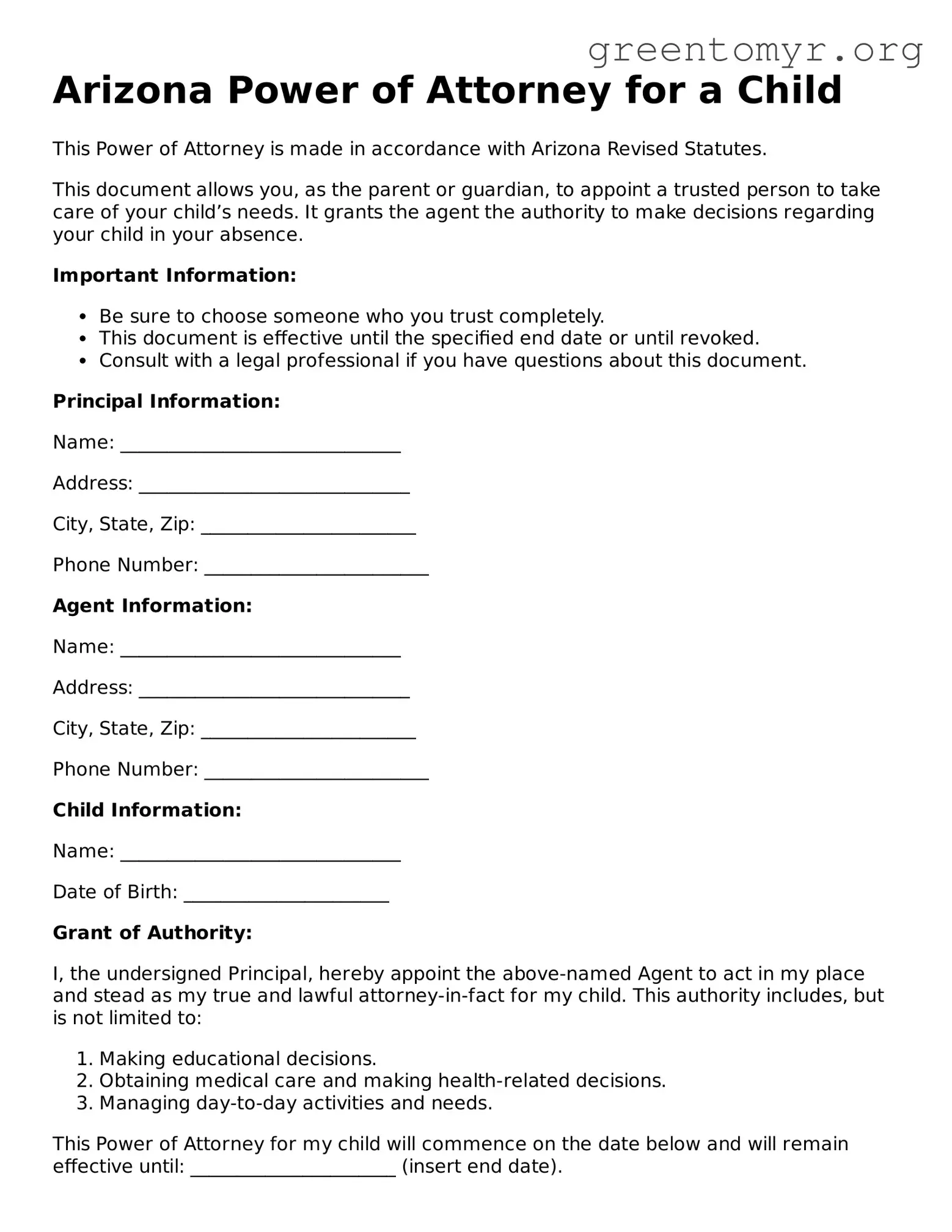Arizona Power of Attorney for a Child
This Power of Attorney is made in accordance with Arizona Revised Statutes.
This document allows you, as the parent or guardian, to appoint a trusted person to take care of your child’s needs. It grants the agent the authority to make decisions regarding your child in your absence.
Important Information:
- Be sure to choose someone who you trust completely.
- This document is effective until the specified end date or until revoked.
- Consult with a legal professional if you have questions about this document.
Principal Information:
Name: ______________________________
Address: _____________________________
City, State, Zip: _______________________
Phone Number: ________________________
Agent Information:
Name: ______________________________
Address: _____________________________
City, State, Zip: _______________________
Phone Number: ________________________
Child Information:
Name: ______________________________
Date of Birth: ______________________
Grant of Authority:
I, the undersigned Principal, hereby appoint the above-named Agent to act in my place and stead as my true and lawful attorney-in-fact for my child. This authority includes, but is not limited to:
- Making educational decisions.
- Obtaining medical care and making health-related decisions.
- Managing day-to-day activities and needs.
This Power of Attorney for my child will commence on the date below and will remain effective until: ______________________ (insert end date).
Signatures:
Principal’s Signature: ______________________
Date: _____________________________________
Witness Signature: _________________________
Date: _____________________________________
Notarization:
State of Arizona, County of ________________
Subscribed and sworn before me on this ____ day of ______________, 20__.
Notary Public: _____________________________
My commission expires: ____________________
